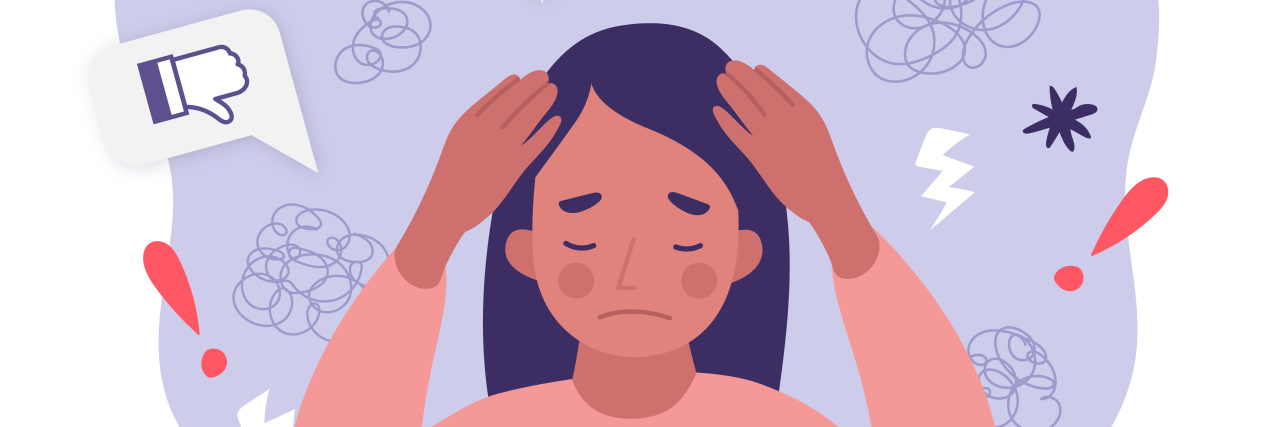It’s happened again: I’m watching television, and my disability is the punchline of a joke. This time it’s John Oliver on his show Last Week Tonight, where Oliver uses humor to keep audiences engaged in his in-depth critiques of otherwise dry subjects like the post office, elder care, or corporate taxation. In last week’s episode — a probe into the business of ambulances — Oliver introduced his chosen villain, the head of a private equity firm, by criticizing the poetry she shared on Instagram. Her writing, he said, feels “less like real poetry and more like someone with a concussion trying to remember Kesha lyrics.”
My body went tense. Not again, I thought.
Since becoming disabled from a concussion in 2015, I’ve become attuned to comments that turn concussions and other brain injuries into jokes. Last year, I wrote in the Huffington Post about similarly deprecating references in the television show “BlackAF” and the romantic comedy “Long Shot.” For me, these “jokes” couldn’t be any more prominent if the lines were delivered alongside sirens and strobe lights. When I hear the joke, I freeze. I can’t follow what happens next, because I’m spinning in thoughts: Did I hear that right? Do these writers and performers really think concussions are things to laugh about? Does everyone else think that, too?
Those of us living with disabilities are keenly aware of how our conditions are depicted in the media. People with disabilities have long been portrayed in movies and TV shows (when we’re portrayed at all) by people who don’t actually have those conditions. (See “Glee,” “Mom,” “Me Before You,” “Forrest Gump,” “Rain Man,” etc.) In fact, a 2016 study by the Ruderman Family Foundation revealed that only five percent of television characters with disabilities were played by actors who had disabilities. This matters because the way disabilities are discussed and portrayed on screen impacts how other people understand our conditions. And therefore it impacts how we are treated by the general public, teachers, bosses, doctors, friends, and even our families.
When I see concussions and other types of brain injuries referenced on television, it’s only ever in two contexts: either it’s about the dangers of playing football, or in service to some joke about how a person is “stupid,” forgetful, or incoherent.
These jokes are harmful on multiple levels. First, they suggest concussions always manifest in the same way. While some people might experience cognitive changes, become forgetful, or have difficulty with language, not everyone does. In the months after the bicycle accident that caused my concussion, I often had trouble remembering common words and the names of acquaintances. I would start a sentence, then pause for what felt like a long time while I tried to come up with tortilla or intersection or Mark.
My brain was so exhausted it couldn’t do simple tasks like deciding what I wanted for dinner, because holding even two different foods in my head, then analyzing each and comparing them to decide what sounded better, was more than I could handle. There were many evenings when my husband’s thoughtful offer to let me choose what he cooked for dinner left me nearly in tears. As a neuropsychiatrist told me at the time, “Your intelligence is still intact, but you’re often too exhausted to access it.”
Now, thankfully, my brain has healed somewhat. In most casual conversations, you’d never know I’m disabled from a brain injury; I know when my brain is nearing its limits, and I remove myself from social situations before things take a turn. If I don’t, I could be laid up, exhausted, for days. Given how much effort it takes to manage my health and make sure I have the energy to be “on” when needed, I’m angry when I hear Oliver and so many others laugh about how people with brain injuries can’t speak or write coherently.
But the second reason Oliver’s comments and other similar “jokes” are so damaging is that many people with brain injuries do experience long-term changes to their use of language, memories, or ability to access their intelligence. Other people, like me, exhibit symptoms only after a few hours of work or conversation has worn us down. Either way, this doesn’t make any of us less worthy of respect, love, or friendship. Nor does it make us fodder for comedy. Why do so many comedians and writers seem to think it does?
The medical understanding of brain injuries still has a long way to go. Doctors don’t know why some patients heal fully and others don’t. They can’t offer a definitive explanation for why we have the symptoms we do. I often despair that if even doctors can’t understand my situation, how will anyone else? Media that stops using us as jokes and instead treats us as human beings worthy of compassion would be a good start.
Follow Kara on Facebook.
Getty image by Fedrelena.

